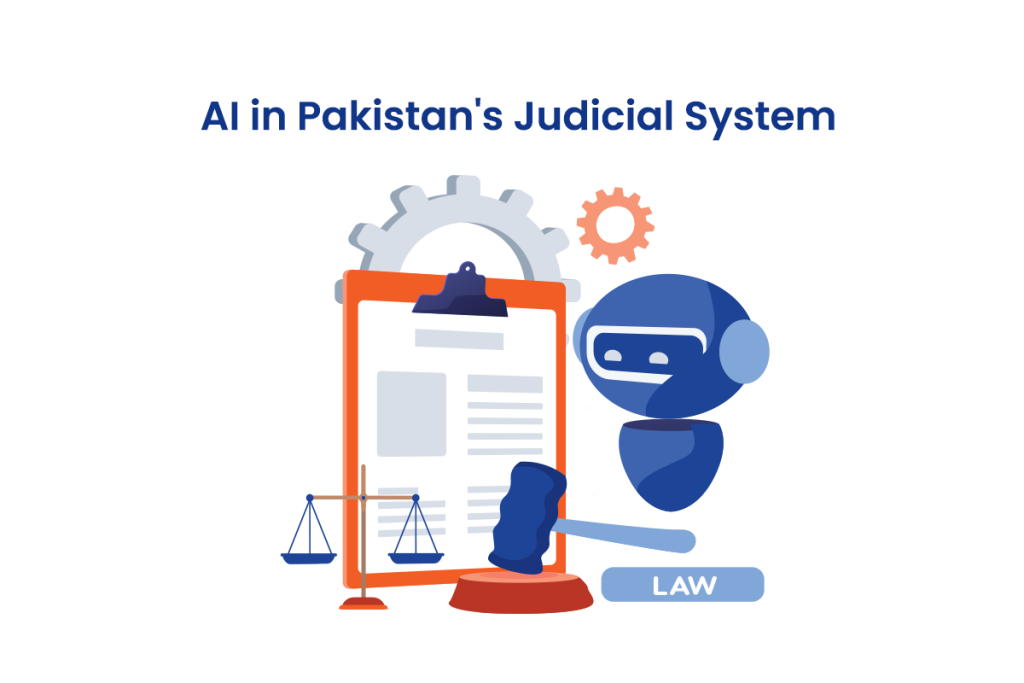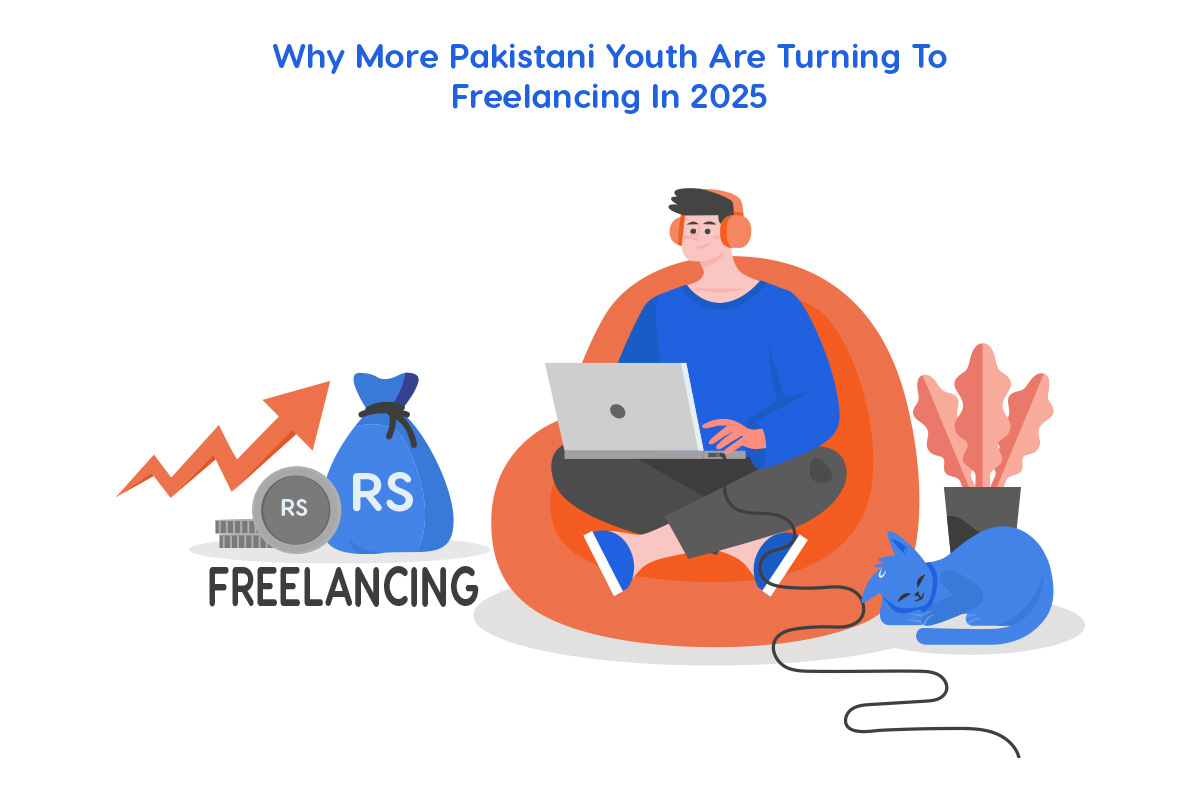The judicial system in Pakistan stands as a pillar of the nation’s governance structure. It is responsible for maintaining the rules of law, ensuring justice and protecting fundamental rights. Today, Pakistani judiciary faces many problems that hinder its efficiency, weaken public trust and hinder access to justice for millions of Pakistani citizens. According to the World Justice Project (WJP) Rule of Law Index 2023, Pakistan ranks 130 out of 142. AI algorithms in judiciary can automatically classify and prioritize cases, assign judges and predict case outcomes based on previous judgments. These algorithms can assist judges and legal professionals make more precise decisions by analyzing large amounts of data, detecting patterns & trends and predicting case outcomes. In this research article, our Tashheer research team will compile all the details related to Pakistan’s transforming judicial system through artificial intelligence.
Read more about: Will Telecom Operators Agree to Block Sims of Non-filers?

Challenges in Pakistan’s Judicial System
One of the chief problems is the huge number of cases waiting to be dealt with in Pakistan’s courts. With thousands of pending cases, the wheels of justice often turn very slowly, leaving litigants waiting for years, if not decades, for resolution. According to The Law and Justice Commission of Pakistan Bi-Annual Report of Judicial Statistics, an unexpected 2.26 million cases are currently in a state of pending in courts. The courts in Pakistan are really slow, which makes people lose trust in them. This is especially hard for poor communities that can’t easily understand or afford to use the complicated legal system. Getting justice is even tougher for people in faraway places where there aren’t many resources, geographical barriers, language differences or limited legal awareness.
Another big problem that Pakistan’s courts is corruption and unfairness. Sometimes, Pakistani politicians, bribes, nepotism, or favoritism influence court decisions, making it hard for the courts to be honest. When justice becomes a commodity available to the highest bidder, it makes people lose trust in the courts and leads to a culture where people can get away with breaking the law. Besides, Pakistan’s legal framework is characterized by complexity and is very confusing, with overlapping laws, outdated procedures, and a need for more clarity in legal provisions. These confusing legal situation makes it hard for legal practitioners and automatically slows down the whole process of making decisions. Without meaningful reforms to simplify and streamline the legal framework, the judiciary will keep struggling to deal with all these confusing rules. Learn more about the consequences of AI in our comparison article Google Vs. AI: How can we Compare AI with Google Search
The Promise of Artificial Intelligence in Judicial Reform
The challenges facing the Pakistani judicial system are formidable but not unconquerable. These challenges are multifaceted and deep rooted but within them lies an opportunity for judicial reform. As Pakistan struggles with multiple difficulties in its legal system, there is a powerful tool that could change the way justice works is artificial intelligence (AI). First and most importantly, AI can help fix many of the big problems in Pakistan’s courts, offering new and better ways to make things work smoothly, fairly, and openly.
By using AI power at this time, Pakistan can advance towards a more fair and efficient judiciary. One of the quickest ways AI can help is by managing cases better. With so many cases in the courts, AI tools can take care of lots of the paperwork, handle scheduling automatically, and organize all the case information. By relieving Pakistani judges and court staff from the manual paperwork burden, AI can free up valuable time and resources. As for cybersecurity consulting companies in Pakistan, here are some notable cybersecurity consulting firms for enhancing digital security, conducting risk assessments, and ensuring regulatory compliance.
AI driven analytics can offer valuable understandings of case trends, judicial performance, and court workflows. By analyzing vast datasets of past cases, AI can guess what might happen in current cases which helps Pakistani lawyers plan better and judges make smarter decisions. Besides managing cases, AI judiciary tool can highly improve the analysis of legal documents. Natural Language Processing (NLP) can sift through huge amounts of legal texts, finding important information quickly and saving lawyers and judges a lot of time. AI powered document analysis tools can identify patterns, errors and irregularities in legal documents, helping legal person in fraud detection and ensuring the integrity of the judicial process.
Expanding Access to Justice
Virtual legal assistants powered by AI can provide basic legal advice, draft legal documents and guide individuals through the complexities of the legal system. AI technology bridges the gap between citizens and the judiciary, Pakistan can democratize access to justice and entrust individuals to claim their rights, no matter what socioeconomic status or geographical location they have.
Adopting AI in Judicial Reform
Judicial systems, prosecution services and other domain specific judicial bodies worldwide are investigating the use of AI in judicial systems. For example, in the criminal justice field, AI systems are already used to provide investigative assistance and automate decision-making processes in many judicial systems worldwide. Pakistani government, legal community, and technology experts must come together to develop a comprehensive strategy for integrating AI into the judicial system.
The implementation of AI in the courts should be progressive. In the first step, we should use AI to perform routine, repetitive, and time-consuming activities. As a second step, it would be fine to implement solutions based on hybrid intelligence. While implementing AI driven solutions, we have to check carefully every activity that is processed in the court and analyze what can be replaced in the first place. This AI tech transition in Pakistan must be done step by step. AI judiciary tools can be used in case management systems, data analysis, surveillance, decision making, sentencing and risk assessment to improve the fairness of legal proceedings in Pakistan’s justice sector. Learn more about Investigating How Robots and Automation are Reshaping Industries and the Workforce
Final Words
In this research article, our Tashheer research team compiled all the details related to Pakistan’s transforming judicial system through artificial intelligence. Improving Pakistan’s judicial system through AI integrated tools is not just a technological upgrade but also a fundamental shift towards a more honest, transparent and equitable legal framework. AI powered tools can also facilitate communication between legal professionals and individuals who speak different languages. By welcoming AI, Pakistan can overcome its judicial challenges and deliver timely and fair justice to all its citizens.





